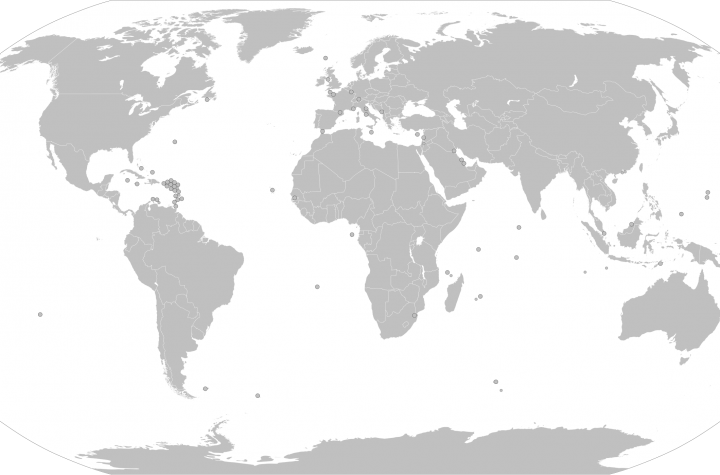
Ill go through the article piece by piece
1. Charles Wyplosz says this – Angela Merkel’s vision of fiscal discipline combines the authority to tell undisciplined countries what to do and long periods of austerity in order to inject them with Germany’s cherished “culture of stability”. This will not work.
Angela Merkel and Germany have done nothing to show they are anything but an unwilling participant in the whole Euro crisis.
Their demands have come from the fact that they have been begged to help out the weaker countries and their response to this begging has been, “well ok if you want our help you need to do this, if you dont like it you are free to do what you want”
For Wyplosz to portray Merkel as a mastermind whose goal is a more intergarted Europe is not based on any facts and is only based on the line been spewed out by the mainstream media.
2. Enforcing fiscal discipline is indeed essential, both in the long run for the euro’s survival and in the short run for markets to start relaxing. But the problem is that the proposed model is one of centralised enforcement. The Stability and Growth Pact has been a tragic failure, in part because it sought to apply top-down pressure on sovereign governments.
Wyplosz is 100% correct here but he has to look at who is really asking for the centralised enforcement. It is not Germany, it is the EU leaders such as Borroso, with a communist history, and Sarkozy whose own government has massive financial problems.
3. This would be a pity because there is another option – decentralised discipline. This is a model that has worked well in the US. Each state has its own fiscal stability rule, backed by its own constitution and enforced by its own supreme court.
Wyplosz puts this forward as a solution to the current “crisis”.
He seems to be blissfully unaware that this is the system that the Euro works under currently. The only problem is that Sarkozy and Barroso do not want it to work. They do not want Greece defaulting, something which would have a huge cleansing effect on the Euro.
4. While the view that countries must atone for past fiscal indiscipline may be acceptable to public opinion in some countries, others will see it as unnecessary self-inflicted pain. Yet, beyond collective preferences, no one denies that the current treatment of the crisis has created a serious moral hazard problem. This problem requires that incentives to respect the fiscal discipline be put in place eventually.
Put in place eventually? Incentives to respect fiscal discipline? These meaures are already in place. If a country has fiscal discipline they can continue to pay investors and they remain a popular government.
Without fiscal discipline the government becomes insolvent. This is the ultimate incentive yet Wyplosz is saying no incentive exoists.
Wyplosz is supposed to be an expert but he seems to be living in the matrix created by the mainstream media.
5. It is a tragedy that, in Europe as in Japan 20 years ago, the bank lobbies have effectively captured their governments. Following the subprime crisis, they have managed to stunt serious reforms and to keep hiding their losses.
At the start of the sovereign debt crisis, they have convinced governments to pour resources into ailing countries – under crippling conditions – in order to avoid debt defaults. When that strategy predictably failed, they have negotiated PSI arrangements that greatly limit their losses, while failing to provide countries with the relief needed to recover market access.
They push for Eurobonds that will protect significant portions of their assets at taxpayers’ expense. Now they threaten governments with a “lending strike” as they argue that deleveraging will lead to a credit crunch. It is about time for governments to call the large banks’ bluff and moot plans to take them over if they are unable to function as banks.
Just when I thought Wyplosz could not see the wood for the trees he comes up with this incredibly insightful paragraph.
He has called the banks out and he has laid out in a way clearer than I could ever hope to.
The banks are blackmailing governments to get tapxayers to bail them out.
Government need to call the bluff of the banks or Europe, and possibly the world, will slip even deeper into tyranny.
6. There are two ways in which the ECB can intervene. The one that seems under consideration is large-scale bond purchases. Unfortunately, this is bound to lead to a huge increase in the ECB’s balance sheet and to major risk-taking by the central bank on behalf of the Eurozone taxpayers.
Just when you think Wyplosz may actually understand the fundamentals he comes out with this statement.
Major risk-taking? Of course it is not a risk, it is a certainty, if there was any chance that these “assets” were worth something they would be bought in the open market.
The results of this exercise will be devaluation of the currency, devaluation of peoples wages and devaluation of peoples savings. It is not rocket science.
7. A more effective, and much less risky, approach is a partial guarantee of all Eurozone public bonds (Wyplosz 2011a). The beauty of a guarantee is that it is virtually costless if it is credible, and a central bank is infinitely credible when it guarantees a finite volume of assets, no matter how large it is. The guarantee must be partial for two reasons. First, the ECB must avoid bailing out the bondholders. Second, the guarantee should not stand in the way of debt restructuring.
Again, Wyplosz sinks back even deeper into the matrix. He says printing money for bad assets is different from printing money to guarantee bad assets.
His 2 solutions are fundametally the same thing and both create moral hazard.
If the assets were legitmate they would not need to be backed up by a printing press.
The only power the ECB has is to devalue the currency or increase the value of the currency. It is only one power but it is the ulitmate power. To be able to decide how much peoples labour and how much peoples property is worth is an awesome power.
A power which should not be concentrated to central banks. The potential for complete tyranny is irresistible as we are seeing.
8. For the fist time since the Eurozone crisis, governments and the ECB are focusing their attention on the necessary steps. This is not luck nor virtue; it is simply that all the wrong solutions that have already been tried have failed, many of them repeatedly. Now Europe’s leaders can start detailing the right course of action, but these details matter enormously. Hold your breath; we may be getting there.
All the solutions have not been tried. The most obvious and the most moral solution was the first option that the EU was presented with, a Greek default and allowing countries to default in general.
Except this solution is not an option because, as Wyplosz points out, the banks are controlling European governments and the government have not as yet called their bluff.
Germany is repeatedly calling the bluff of the bankers, but in steps Barroso and Sarkozy to mediate between Merkel and the international banking cartel and to smooth things out.
Merkel and Germany is staying strong and forcing the banks to give up more and more. Germany knows it has nothing to fear. But it is not only the banks that are trying to exert pressure on Germany.
The co-ordinated efforts of the international media to portray Germany as the evil party is awesome to watch.
So far I would say it is a draw but the banks are continuing to ramp up the pressure by allegedly manipulating German bond auctions and you can expect the sitatuoins in Greece and Italy to deteriorate further with the ultimate aim to make things so bad Germany is forced to fold or be accused of being a sadistic state who will not come to the rescue of innocent people even though it has the means to.
The artificially created Euro crisis has a while to go yet, it will be interesting and painful to see how it develops.





More Stories
Φυλακές Κορυδαλλού: Έρευνα της ΕΛ.ΑΣ. σε κελιά – Τι βρέθηκε (βίντεο)
Η λίστα με τις 198 «απάτητες παραλίες» – Ψηφιακή εφαρμογή «MyCoast» για καταγγελίες
Καιρός: Τα νέα δεδομένα της ΕΜΥ – Πού θα χτυπήσουν τα έντονα τα φαινόμενα